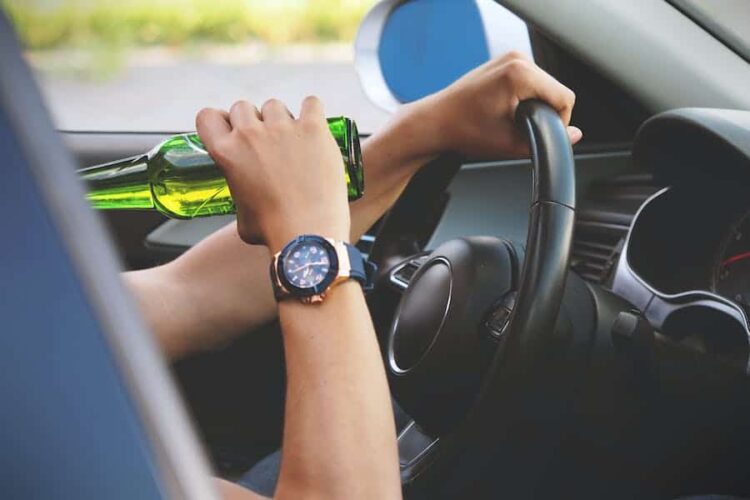Overview of the Issue
Drunk driving remains a critical issue, posing significant risks to public safety and health. Annually, countless lives are impacted by the repercussions of impaired driving, leading to devastating accidents and legal consequences. For offenders, the journey doesn’t end with legal penalties; it extends into the crucial need for rehabilitation. This process is essential not only for their personal recovery but also for safeguarding the community. Drunk driving accident lawyers often emphasize the importance of robust support systems in this context. These systems play a pivotal role in helping offenders reintegrate into society, reduce the likelihood of reoffending, and ultimately contribute to a safer, more responsible societal framework. The effectiveness of rehabilitation is a key factor in breaking the cycle of recidivism, underscoring its importance in addressing the broader problem of drunk driving.
The Role of Rehabilitation in Legal Penalties
Rehabilitation programs have increasingly become a vital component of legal penalties for drunk driving offenses. Rather than solely imposing punitive measures like fines or imprisonment, courts are recognizing the long-term benefits of incorporating rehabilitation into sentencing. This approach not only serves as a corrective measure but also addresses the root causes of the offender’s behavior. Rehabilitation, often involving alcohol education, counseling, and therapy, aims to educate offenders about the dangers of drunk driving and encourages behavioral change. If you or someone you know is struggling with substance abuse, don’t hesitate to reach out to the addiction hotline Texas for confidential support and guidance.
This holistic approach contrasts with punitive measures that may not effectively prevent future offenses. The integration of rehabilitation into legal penalties acknowledges that while accountability is important, providing offenders with the tools for change is equally crucial. This strategy not only benefits the individual but also contributes to public safety by reducing the likelihood of repeat offenses, thereby creating a more responsible and aware society.
Types of Rehabilitation Programs
Rehabilitation programs for drunk driving offenders vary in approach and intensity, catering to the diverse needs and circumstances of individuals. One common type is counseling, which can range from individual sessions focusing on personal triggers and coping strategies to group therapy that provides peer support and shared learning experiences. These counseling sessions aim to address underlying issues related to alcohol misuse.
Another key form of rehabilitation is alcohol education classes. These classes offer vital information about the effects of alcohol on the body and mind, legal consequences of drunk driving, and the impact on victims and families. They are designed to increase awareness and encourage responsible behavior.
For more severe cases, in-patient treatment facilities like Carrara luxury rehab in Los Angeles are available. These provide a structured environment for intensive rehabilitation. Here, offenders have access to medical support, detoxification programs, and comprehensive therapy to address addiction. This immersive approach is beneficial for those who require a more focused and supportive setting to overcome their challenges with alcohol. Each of these programs plays a crucial role in the rehabilitation process, offering tailored approaches to help offenders rebuild their lives and prevent future incidents of drunk driving.
Success Stories and Statistics
Rehabilitation programs have shown promising success rates in curbing repeat offenses among drunk driving offenders. Studies indicate that participants in these programs are significantly less likely to reoffend compared to those who only face traditional punitive measures. For instance, a report showed a 40% reduction in recidivism for offenders who completed alcohol education and counseling programs. An inspiring case is John, a former offender, whose life transformed after attending a rehabilitation program. He credits the comprehensive counseling and support he received for his now three years of sobriety and active advocacy against drunk driving, demonstrating the profound impact these programs can have.
Challenges in Rehabilitation
Offenders undergoing rehabilitation for drunk driving often face numerous challenges, including denial of their alcohol problem, the risk of relapse, and social stigma. Denial can be a significant barrier, preventing individuals from fully engaging with the program. Addressing this requires a personalized approach in counseling, helping offenders to acknowledge and confront their issues. Relapse, a common struggle in the recovery journey, necessitates continuous support and sometimes, repeated interventions. Rehabilitation programs often include relapse prevention strategies, teaching coping skills and providing resources for ongoing support. Additionally, the social stigma attached to drunk driving can lead to isolation and shame, hindering recovery. Building a supportive community, both through peer groups within the program and encouraging family and community involvement, is essential to help overcome these challenges and facilitate successful rehabilitation.
The Role of Family and Community Support
The support of family, friends, and the community is pivotal in the recovery and rehabilitation of drunk driving offenders. A supportive environment not only provides emotional and moral encouragement but also aids in maintaining accountability and motivation throughout the rehabilitation process. For offenders who are dealing with substance abuse, exploring outpatient addiction treatment options, including those located in Tampa, can offer flexibility while ensuring continuous care. Family and friends can offer practical help, such as transportation to counseling sessions or court dates, and emotional support through understanding and patience. Community support, including local support groups and community-based programs, creates a network of care and acceptance, helping individuals feel less isolated in their journey. This inclusive approach significantly increases the likelihood of successful rehabilitation and long-term sobriety, underlining the critical role of a supportive social network.
Government and Nonprofit Resources
Various government and nonprofit organizations offer resources and support for the rehabilitation of drunk driving offenders. For example, the National Highway Traffic Safety Administration (NHTSA) provides funding and resources for programs focused on preventing drunk driving. Nonprofits like Mothers Against Drunk Driving (MADD) offer support services, including victim assistance and advocacy for stronger laws. Additionally, local government agencies often have programs offering counseling and education for offenders. These resources are crucial in providing structured rehabilitation programs and raising awareness about the consequences of drunk driving. The collaboration between these organizations and legal systems ensures a comprehensive approach to rehabilitation, emphasizing the importance of support and education.
Future Perspectives and Preventive Measures
Looking ahead, the focus on preventive measures and continuous support is vital for the successful reintegration of drunk driving offenders into society. Education campaigns targeting young drivers, increased public awareness about the dangers of drunk driving, and the promotion of responsible alcohol consumption are key preventive strategies. Ongoing support for rehabilitated offenders, including job placement programs and community reintegration initiatives, can help in maintaining long-term sobriety and reducing recidivism. The future of tackling drunk driving lies in a balanced approach that combines prevention, strict enforcement of laws, and comprehensive rehabilitation, ensuring a safer and more responsible society.










